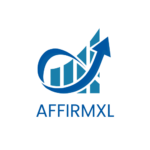In a world where spreadsheets can feel like a labyrinth and numbers dance like they’re at a party, SaaS accounting software swoops in like a superhero with a cape made of balance sheets. It’s the secret weapon every business needs to banish financial chaos and embrace clarity. Gone are the days of drowning in paperwork or losing track of expenses; with the right software, managing finances becomes as easy as pie—or at least easier than figuring out why your cat thinks the printer is a cozy bed.
Imagine having real-time insights at your fingertips and automating those tedious tasks that used to eat up precious hours. SaaS accounting software offers just that, making it not only a smart choice but a fun one too. So buckle up as we dive into the world of cloud-based accounting, where efficiency meets hilarity, and managing money becomes a breeze.
SAAS Accounting Software
SaaS accounting software offers businesses an efficient solution for managing financial processes. This software operates on a subscription model, allowing access to cloud-based applications without hefty upfront costs. Users benefit from features such as real-time reporting, automated invoicing, and expense tracking, which enhance productivity.
Cloud computing plays a significant role in SaaS accounting software. By storing financial data securely online, organizations eliminate the need for extensive physical infrastructure. Accessing financial information from any location at any time becomes straightforward, promoting flexibility and convenience.
Automation is another key advantage of this software. In many cases, manual data entry is minimized, reducing the likelihood of errors. Frequent updates ensure users receive the latest features and security enhancements, keeping their financial data safe and compliant.
Integration with other business applications also strengthens functionality. Many SaaS accounting solutions seamlessly connect with CRM, e-commerce, and project management tools. Such interoperability enhances overall operational efficiency and provides a comprehensive view of financial health.
Cost-effectiveness contributes to its growing popularity as well. Subscription models allow businesses to scale their accounting capabilities without overspending. They can select plans that align with their needs, making budgeting easier.
SaaS accounting software represents an innovative approach to financial management. Its cloud-based design, focus on automation, and strong integration capabilities present compelling advantages for businesses of all sizes.
Key Features of SaaS Accounting Software

SaaS accounting software boasts a range of features that streamline financial management for businesses. Users benefit from a variety of tools designed to enhance efficiency and simplify processes.
User-Friendly Interface
Intuitive design characterizes the user-friendly interface of SaaS accounting software. Users navigate easily through dashboards that display important financial data at a glance. Clear menus and guided workflows reduce the learning curve for new users. Customizable settings enable users to tailor their experience to their preferences. Visual charts and graphs present data clearly, making financial information accessible. Overall, such designs contribute to increased productivity by minimizing confusion and facilitating quicker task completion.
Automation Capabilities
Automation capabilities transform routine accounting tasks into efficient processes. Tasks such as invoicing, payment reminders, and report generation occur automatically, saving time for users. Less manual data entry directly correlates with a reduction in errors, enhancing accuracy. Frequent updates ensure that users access the latest features seamlessly. Integration with banking systems and other business applications further streamlines workflows. As a result, businesses enjoy improved cash flow management and enhanced operational efficiency through these automation features.
Benefits of Using SaaS Accounting Software
SaaS accounting software offers a range of advantages that enhance financial management for businesses. Key benefits include cost efficiency, accessibility, and collaboration opportunities.
Cost Efficiency
Cost efficiency represents a primary advantage of SaaS accounting software. Businesses benefit from lower upfront investments since subscription models eliminate the need for significant hardware and software purchases. Predictable monthly fees simplify budgeting and reduce financial strain. Many providers offer tiered pricing plans, allowing companies to choose a level that matches their needs. Additionally, by automating tasks such as invoicing and reporting, organizations save time and labor costs. This financial flexibility makes SaaS accounting appealing for startups and established firms alike.
Accessibility and Collaboration
Accessibility and collaboration enhance the effectiveness of SaaS accounting software. Users can access financial data from any device with internet connectivity, providing real-time insights regardless of location. Mobile-friendly interfaces support on-the-go access, enabling decision-makers to stay informed. Collaboration among team members becomes more efficient since multiple users can work simultaneously within the platform. Furthermore, cloud-based features enable effective sharing of financial data with stakeholders and accountants, fostering transparency and improving communication. This level of accessibility makes SaaS accounting software essential in today’s fast-paced business environment.
Popular SaaS Accounting Software Solutions
Businesses benefit from a variety of SaaS accounting software solutions that cater to different needs. Below are some notable platforms.
QuickBooks Online
QuickBooks Online stands out for its user-friendly design and robust features. Users gain access to essential tools like invoicing, expense tracking, and financial reporting. The software allows integration with third-party applications such as payment processors and CRMs, enhancing overall efficiency. Businesses appreciate the automated bank sync feature that streamlines transactions. Moreover, real-time reports enable informed decision-making. With subscription options tailored for different business sizes, affordability remains a strong selling point.
FreshBooks
FreshBooks excels in serving freelancers and small businesses with simple invoicing and expense management functionalities. Its intuitive interface leads to quick navigation, enabling users to create professional invoices effortlessly. The software’s time tracking capabilities assist users in managing billable hours accurately. Collaboration tools allow seamless communication with clients and team members on projects. With cloud-based storage, FreshBooks ensures data security and allows access from any device. Subscription pricing structures provide flexibility, catering to evolving business needs.
Xero
Xero captures attention with its powerful accounting features and extensive integrations. Businesses rely on its capabilities for comprehensive reporting and real-time financial tracking. An intuitive dashboard presents essential financial data at a glance, enhancing visibility. Users benefit from automated invoicing and bank reconciliation, reducing manual data entry. Xero’s mobile app supports on-the-go access to financial information. It also accommodates a variety of add-ons, making it a versatile choice for growing enterprises. Its straightforward pricing plans appeal to small and medium-sized businesses alike.
Challenges and Considerations
SaaS accounting software presents several challenges and considerations that users must evaluate.
Data Security
Data security remains a top priority for businesses utilizing SaaS accounting software. Protecting sensitive financial information requires robust security measures. Encryption of data during transfer and storage safeguards against unauthorized access. Compliance with regulations such as GDPR adds another layer of security, ensuring that user data is handled responsibly. Regular software updates enhance security features, addressing vulnerabilities proactively. Businesses should confirm that their chosen software provides strong backup solutions to prevent data loss and ensure recovery in case of an incident.
Integration with Other Tools
Integration with other tools can enhance the overall functionality of SaaS accounting software. Seamless connections with applications like CRM and project management platforms improve workflows. Users appreciate the ability to automate data transfer between these systems, reducing manual input and minimizing errors. Compatibility with various APIs allows for customized solutions tailored to specific business needs. Selecting software that offers extensive integration options ensures a comprehensive view of financial health across multiple platforms. Well-integrated systems promote efficiency, enabling teams to collaborate effectively and make informed decisions.
Conclusion
SaaS accounting software stands out as a game-changer for businesses seeking efficiency and ease in financial management. With its real-time insights and automation capabilities it empowers users to focus on growth rather than getting bogged down by tedious tasks. The flexible subscription model and seamless integration with other applications further enhance its appeal making it suitable for organizations of all sizes.
As businesses navigate the complexities of financial management they’ll find that adopting SaaS accounting software is not just a smart choice but a strategic move that fosters collaboration and innovation. Embracing this technology can lead to streamlined processes and improved financial health paving the way for future success.



